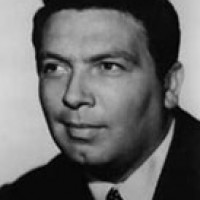Petri graduated with a degree in literature from the University of Rome. He was politically active as a member of the Italian Communist Party (from which he retreated in 1956) and wrote film critiques for the newspaper “L\'Unita”. Through Gianni Puccini, Petri met Giuseppe De Santis and started to work on film as De Santis’ s assistant for the film
Giorni d\'amore (Days of Love, 1954). He continued his collaboration with De Santisom as a screenwriter; among others, working on screenplays for the films
Cesta duga godinu dana (Road a Year Long, 1958) and
Vlak bez voznog reda (Train Without a Timetable, 1959). He made two short documentaries
Nasce un campione (1954) and
I sette contadini (1959), and later made his directing debut with the film
L’assassino (The Assassin, 1960). He started his career at the same time as Pietro Paolo Pasolini, Bernardo Bertolucci and Marco Bellochio. In his films, he harshly criticized Italian social reality. His most important films include
I giorni contati (1962),
A ciascuno il suo (We Still Kill the Old Way, 1966),
Indagine su un cittadino al di sopra di ogni sospetto (Investigation of a Citizen Above Suspicion, 1970) that won the Jury’s award and the FIPRESCI award at the Cannes film festival as well as the Oscar as Best foreign film in 1970. His next film,
La classe operaia va in paradiso (The Working Class Goes to Heaven, 1971), won the Golden Palm in 1972. He also made
La proprieta non e piu un furto (Property Is No Longer a Theft, 1973),
Todo modo (1976) and
Le mani sporche (1978), which he directed for television, was based on Jean-Paul Sartre’s drama.
Le buone notizie (Good News, 1979) is his last film.
Filmography
Filmography:
Le buone notizie (Good News, 1979)
Le mani sporche (1978) (TV)
Todo modo (1976)
La proprieta non e piu un furto (Property Is No Longer a Theft, 1973)
La classe operaia va in paradiso (The Working Class Goes to Heaven, 1971)
Indagine su un cittadino al di sopra di ogni sospetto (Investigation of a Citizen Above Suspicion, 1970)
Un tranquillo posto di campagna (A Quiet Place in the Country, 1968)
A ciascuno il suo (We Still Kill the Old Way, 1966)
La decima vittima (The Tenth Victim, 1965)
Alta infedelta (High Infidelity, 1964) (segment “Peccato nel pomeriggio”)
Nudi per vivere (1964)
Il maestro di Vigevano (The Teacher from Vigevano, 1963)
I giorni contati (1962)
L’assassino (The Assassin, 1960)
I sette contadini (1959)
Nasce un campione (1954)
